Enterprise Data Architect Cover Letter Examples

May 29, 2025
|
12 min read
Unlock your future in enterprise data architecture with a cover letter that opens doors. Discover how to craft a letter that stands out in the tech world, with tips as solid as your data structures.
Rated by 348 people
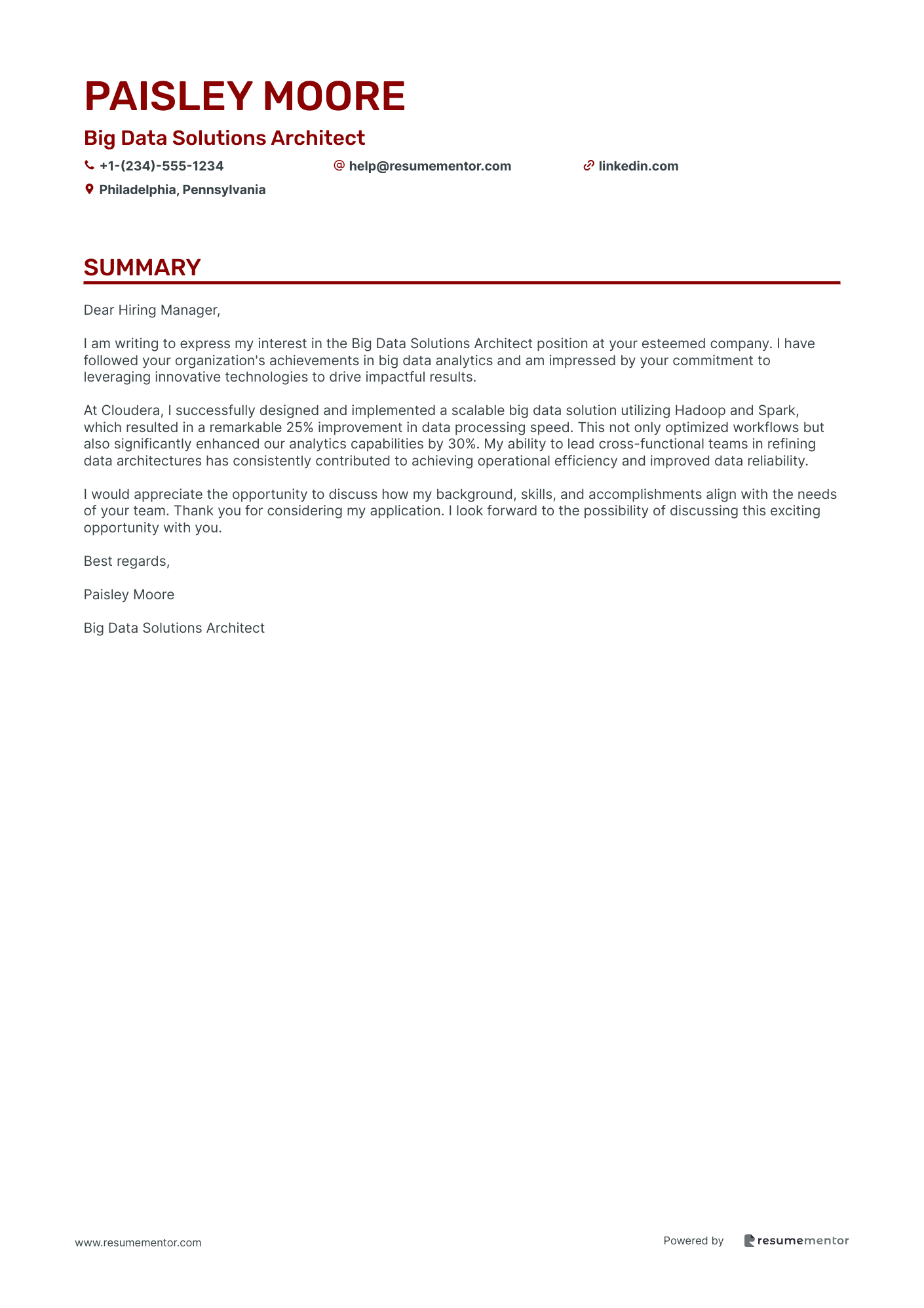
Big Data Solutions Architect
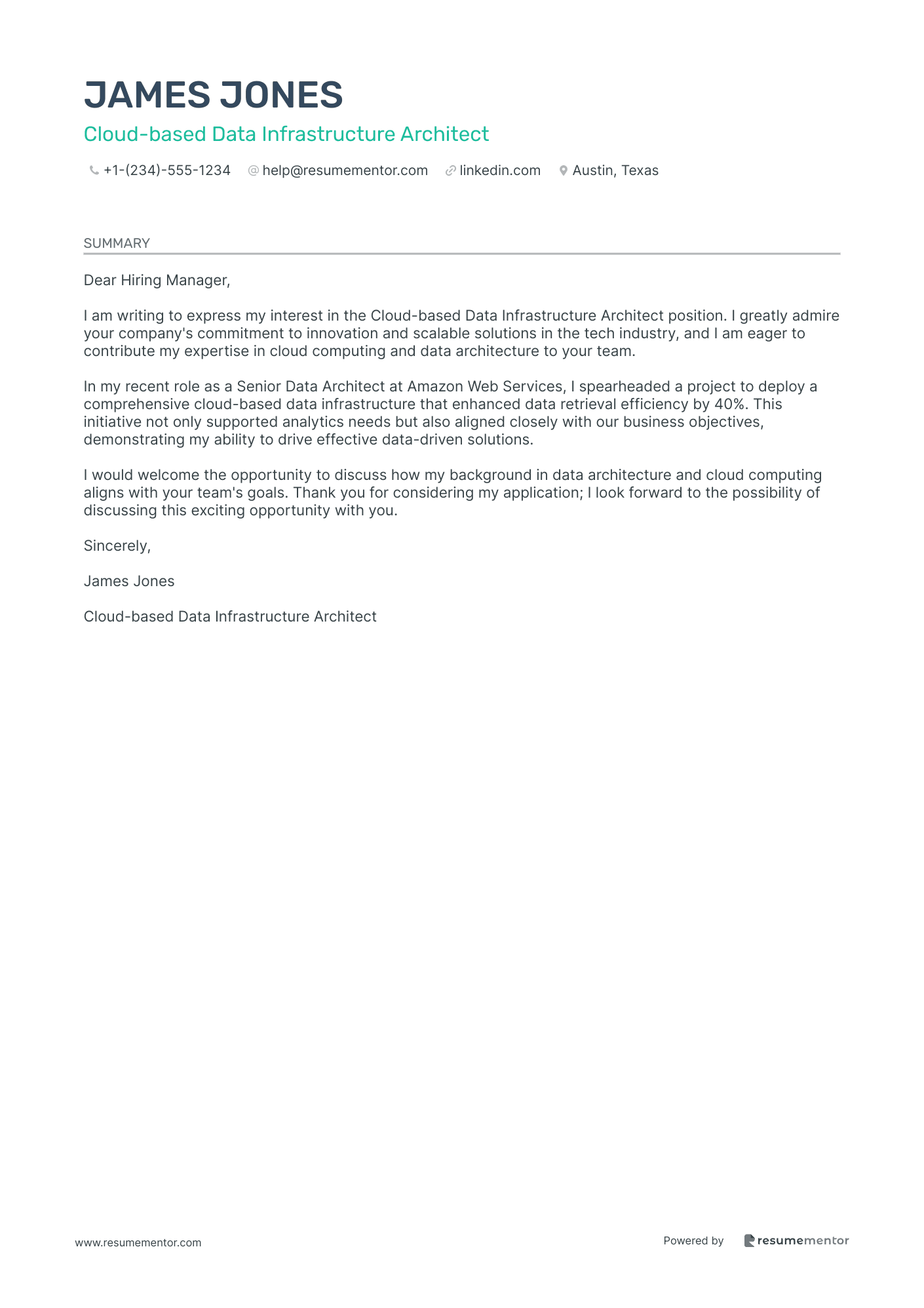
Cloud-based Data Infrastructure Architect
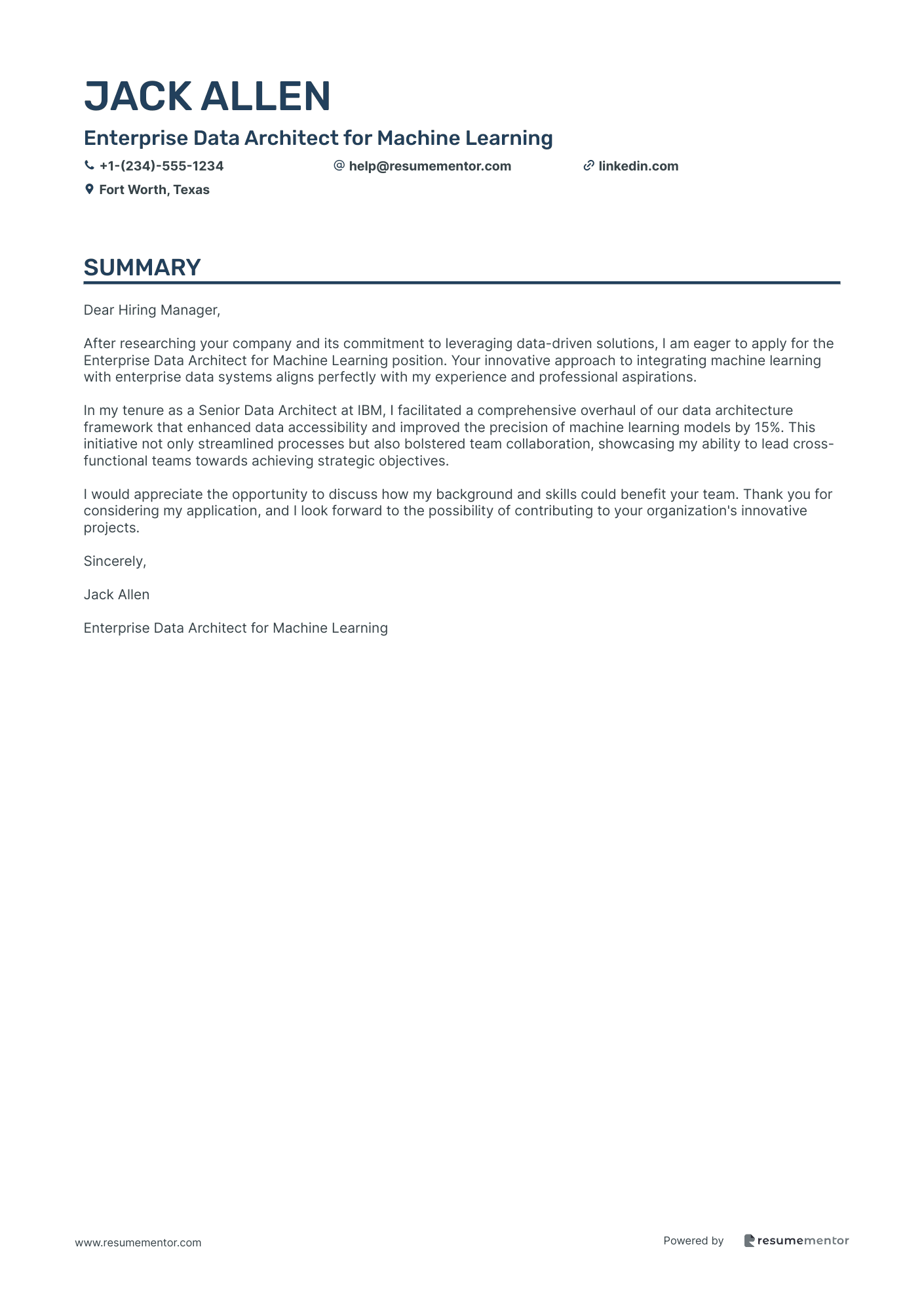
Enterprise Data Architect for Machine Learning
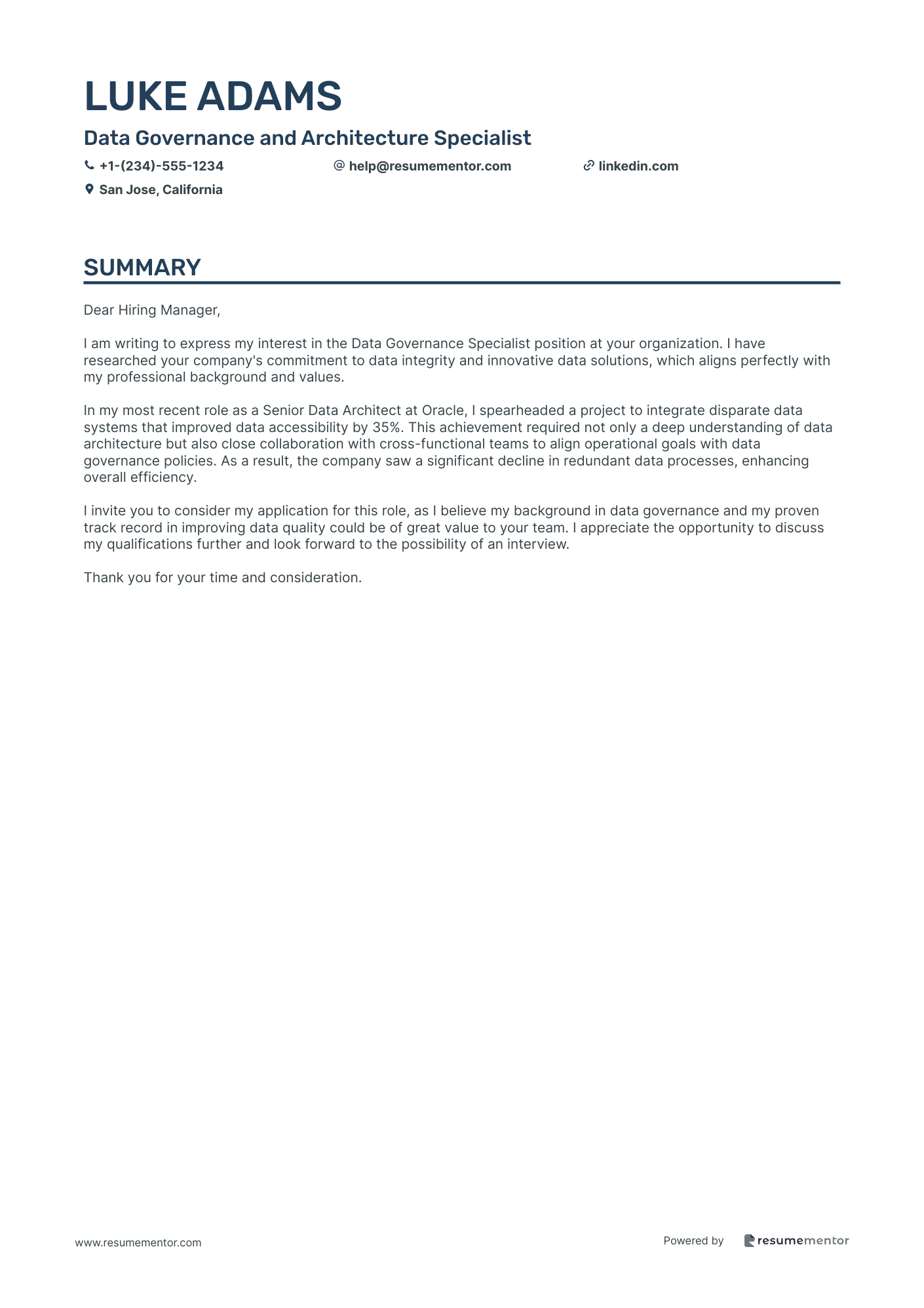
Data Governance and Architecture Specialist
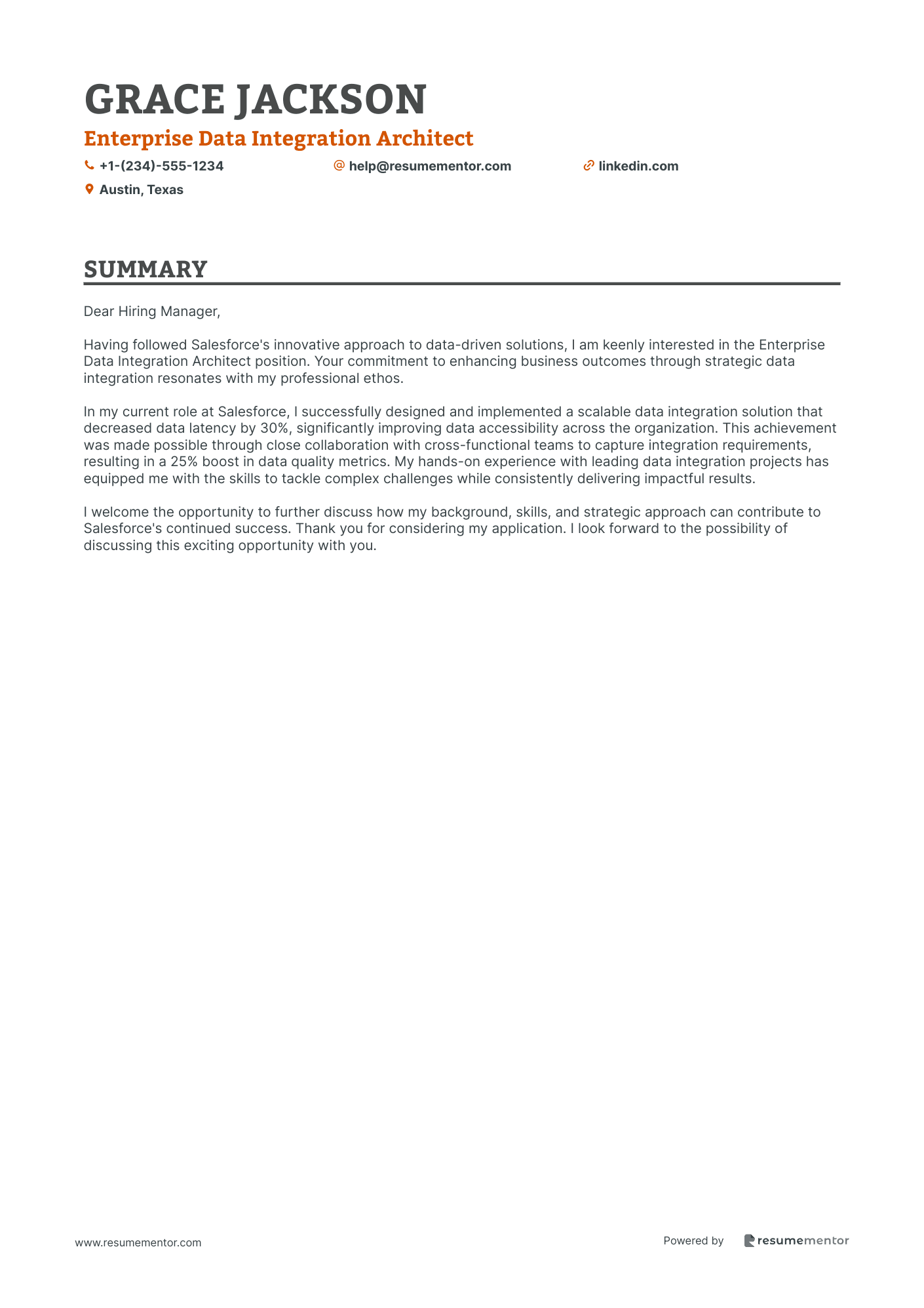
Enterprise Data Integration Architect
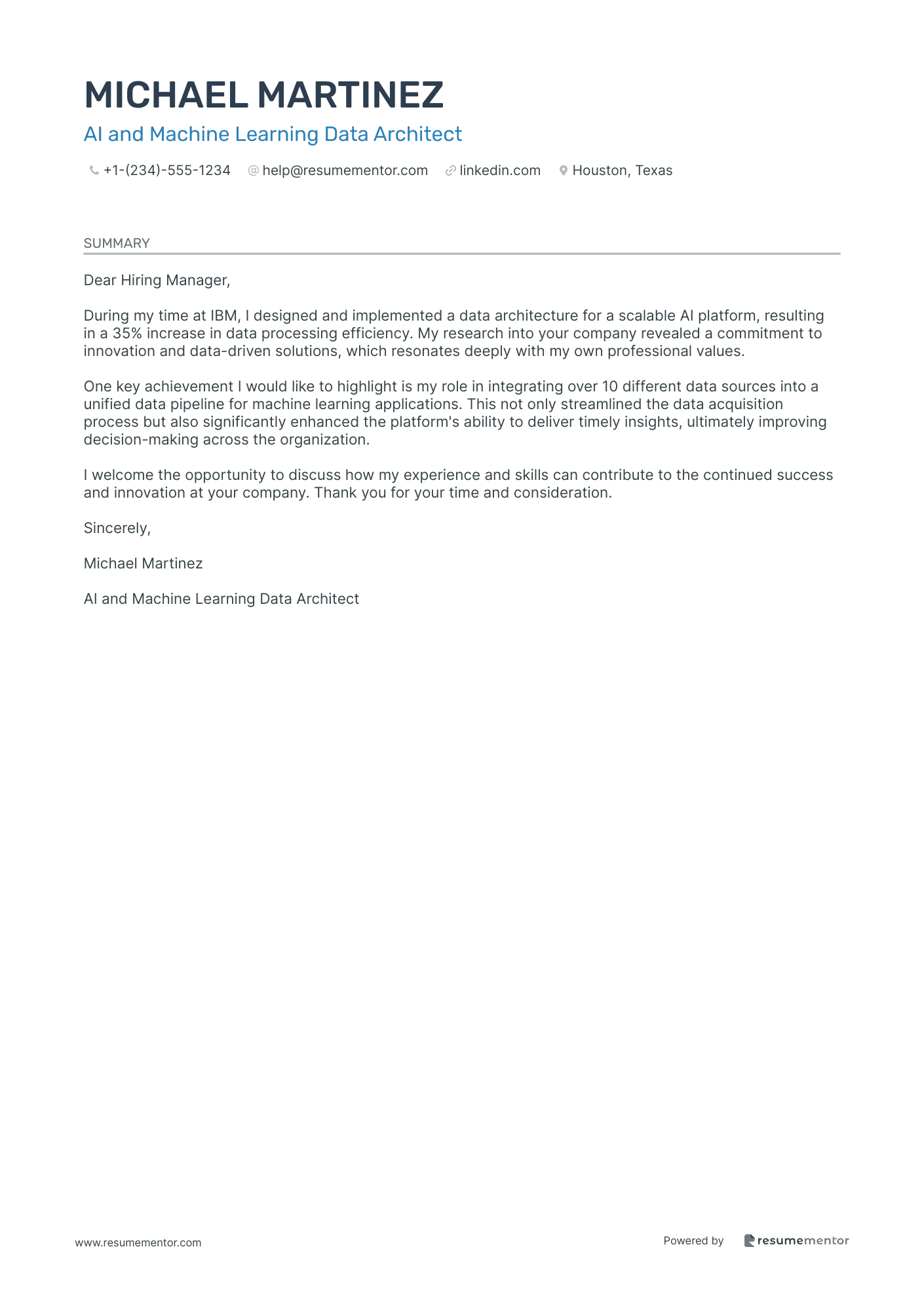
AI and Machine Learning Data Architect
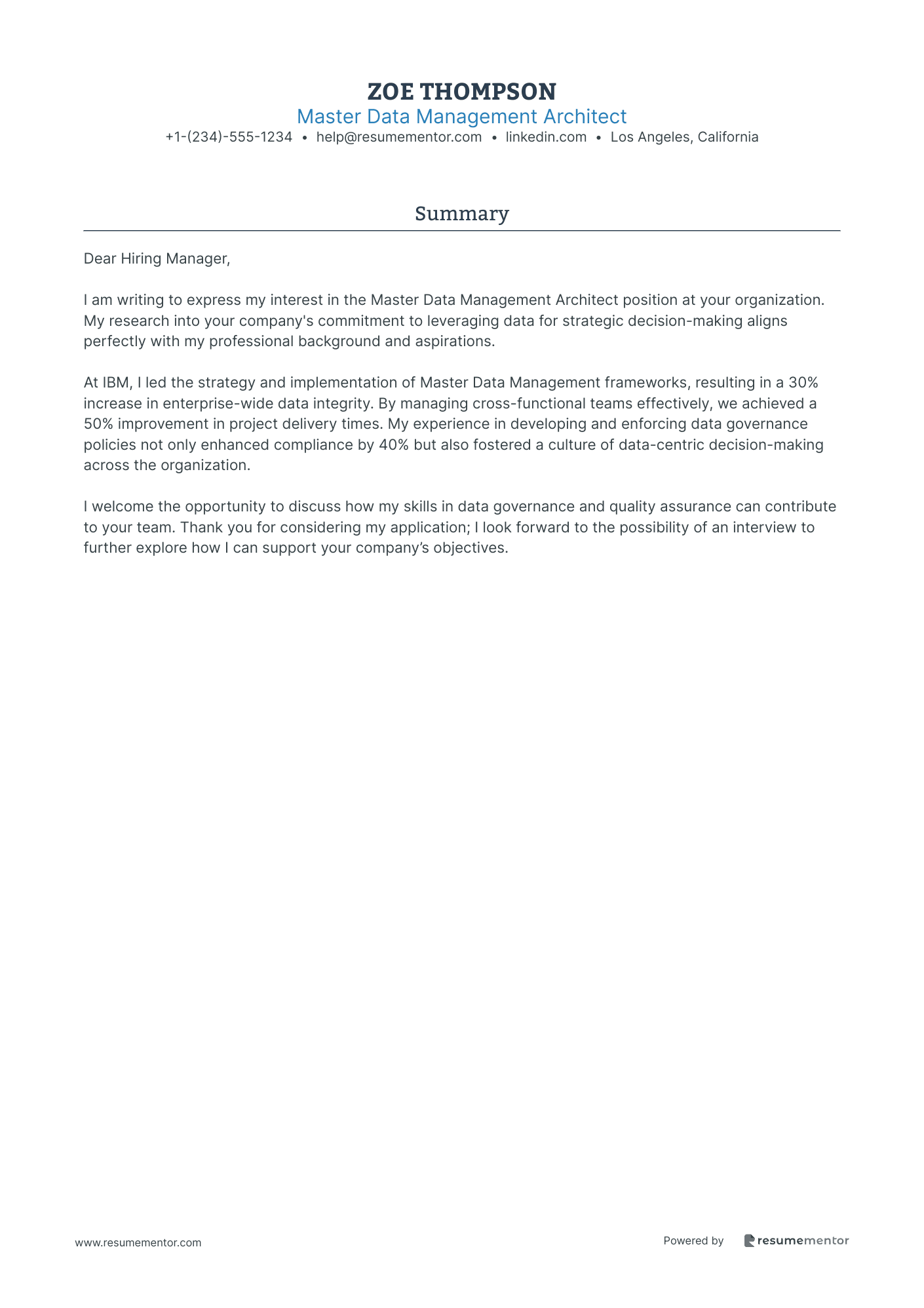
Master Data Management Architect
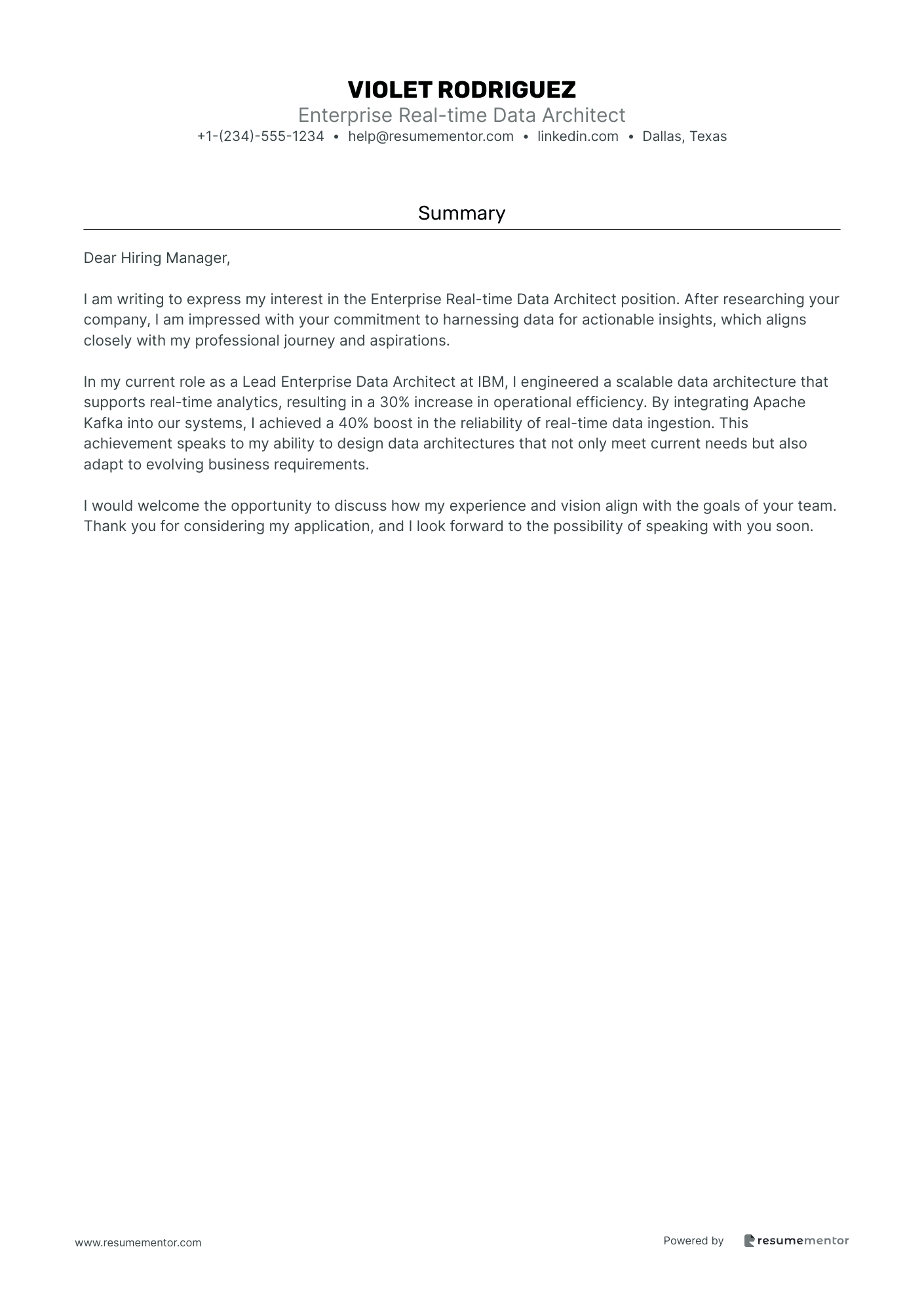
Enterprise Real-time Data Architect
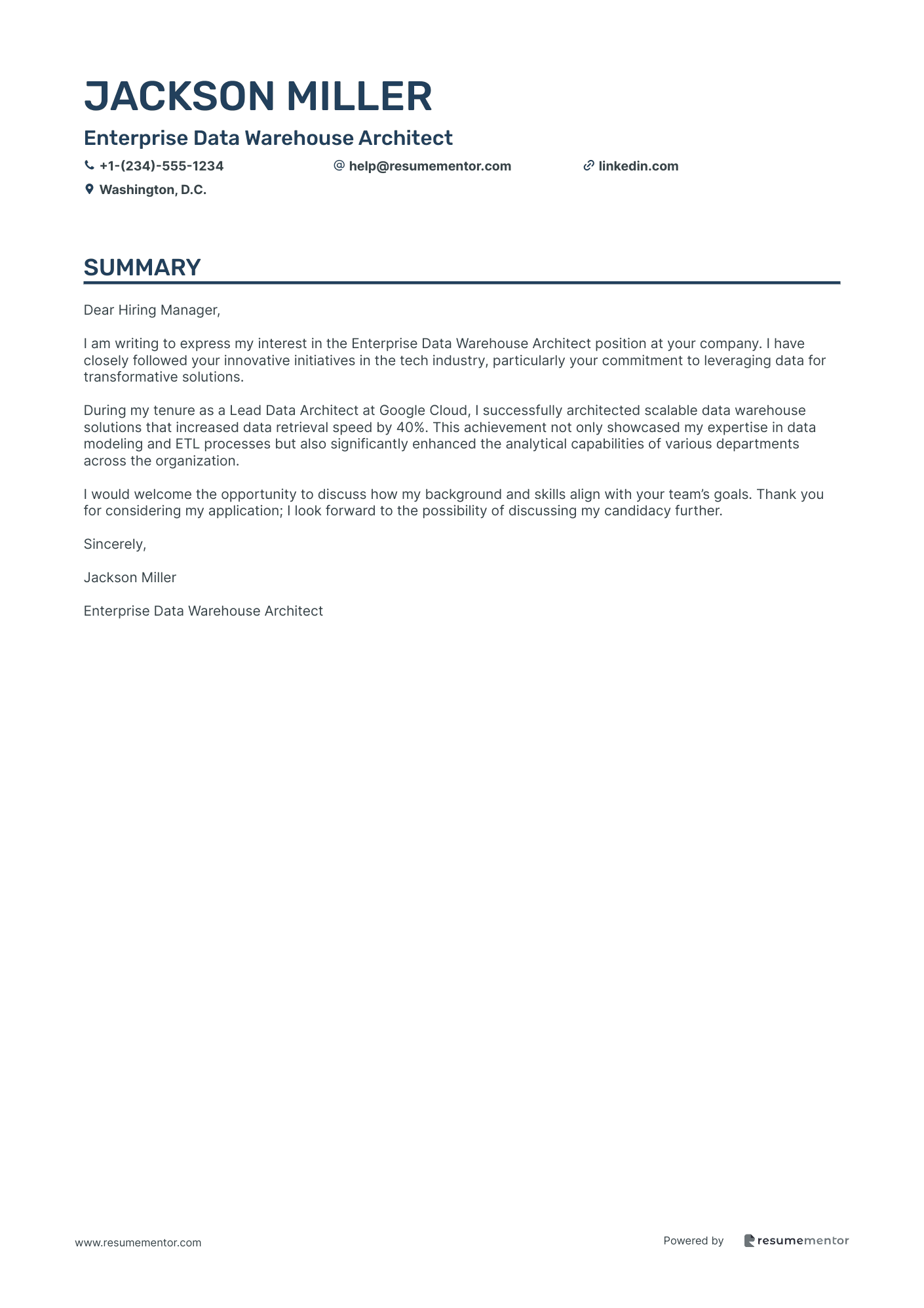
Enterprise Data Warehouse Architect
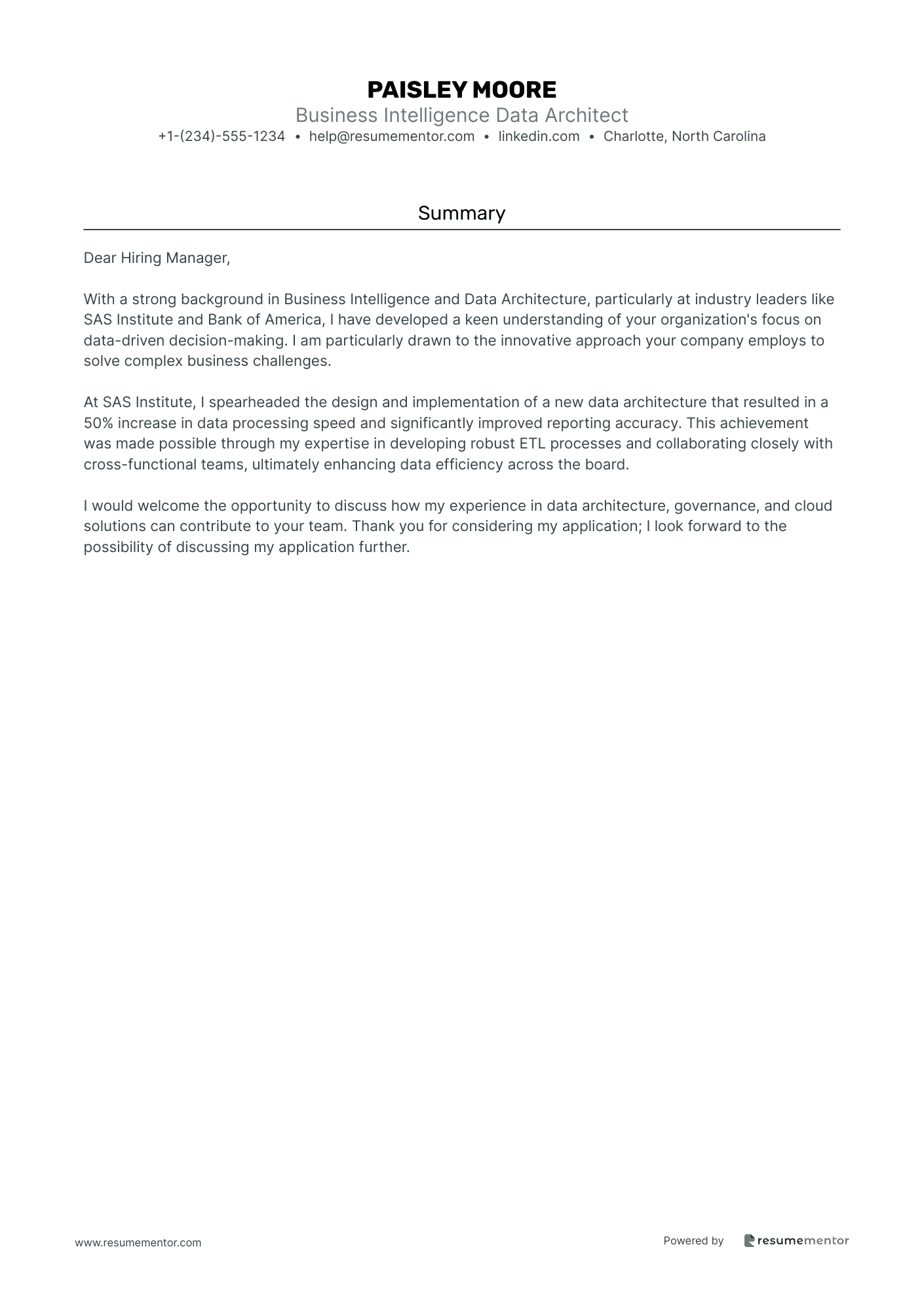
Business Intelligence Data Architect

Big Data Solutions Architect cover letter sample
Cloud-based Data Infrastructure Architect cover letter sample
Enterprise Data Architect for Machine Learning cover letter sample
Data Governance and Architecture Specialist cover letter sample
Enterprise Data Integration Architect cover letter sample
AI and Machine Learning Data Architect cover letter sample
Master Data Management Architect cover letter sample
Enterprise Real-time Data Architect cover letter sample
Enterprise Data Warehouse Architect cover letter sample
Business Intelligence Data Architect cover letter sample
Related Articles

Continue Reading
Check more recommended readings to get the job of your dreams.
Resume
Resources
Tools
© 2026. All rights reserved.
Made with love by people who care.
